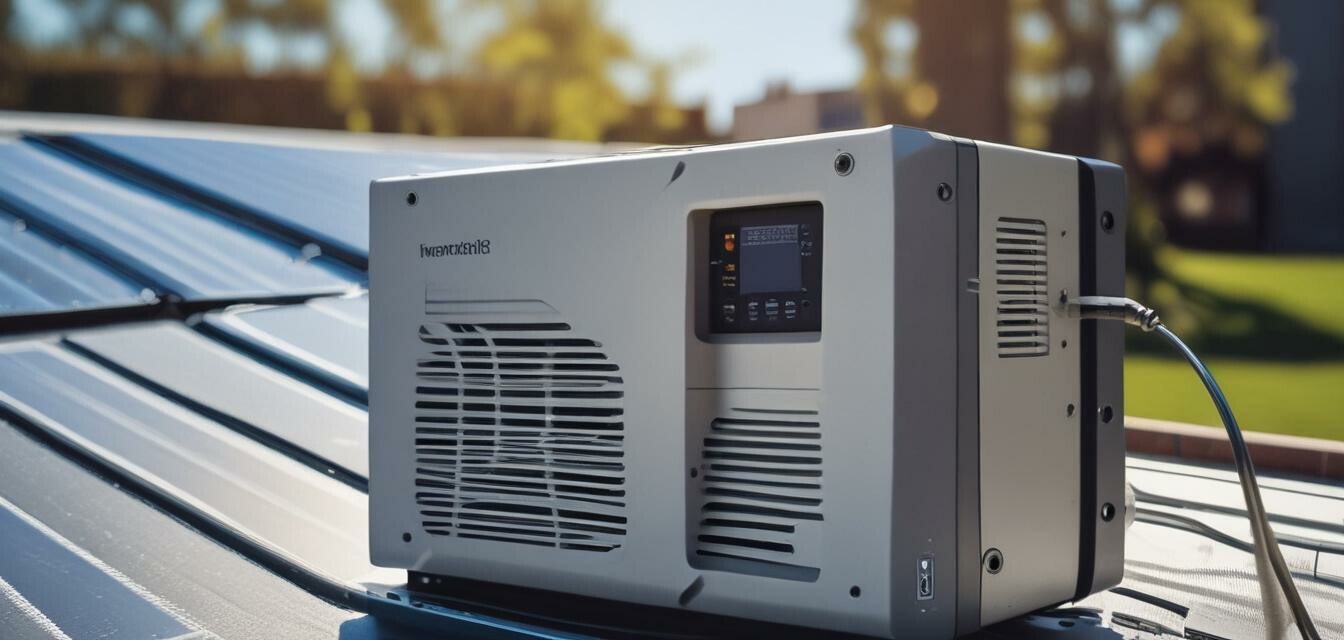
Best Practices for Solar Inverter Maintenance
Key Takeaways
- Regular checks can extend the lifespan of your solar inverter.
- Keep the inverter clean and free from obstructions.
- Monitor performance regularly to catch issues early.
- Understand the indicators of inverter issues.
- Schedule professional maintenance every few years.
Solar inverters are essential components of your solar energy system, converting the direct current (DC) produced by solar panels into alternating current (AC) for your home. To ensure optimal performance and extend the lifespan of your inverter, it is vital to perform regular maintenance. In this guide, we will cover the best practices for solar inverter maintenance that every homeowner should know.
Why is Maintenance Important?
Regular maintenance of your solar inverter is crucial for several reasons:
- **Performance Optimization**: A well-maintained inverter operates efficiently, ensuring you generate the most electricity.
- **Longevity**: Routine care reduces wear and tear, leading to a longer operational life.
- **Cost Savings**: Identifying and resolving minor issues early can save you from expensive repairs or replacements.
Tips for Maintaining Your Solar Inverter
Beginner's Section: Easy Maintenance Tips
- Inspect regularly: Monthly checks can help spot any visible issues, like damage or dirt accumulation.
- Clean the inverter: Dust and debris can block air vents; wipe down the exterior with a soft cloth.
- Check wires and connections: Ensure there are no loose wiring or signs of corrosion.
Performance Monitoring
Keeping an eye on your inverter's performance is vital. Here are steps to help:
- Use monitoring software: Most modern inverters come with apps or software that track performance.
- Look for alerts: Set up alerts for any significant dips in performance or error notifications.
- Review data periodically: Keep records and analyze running trends to identify anomalies.
Indicators of Potential Issues
Be aware of the following signs that may indicate problems with your inverter:
- Overheating: Inverters should never feel excessively hot; if they do, it may suggest an issue.
- No output: If the inverter shows it's operational but isn't generating power, investigate further.
- Frequent error codes: Check your manual for meaning; repeated errors may require professional help.
Professional Maintenance
Even with your diligent care, it's recommended to schedule a professional maintenance check every 2-5 years. Professional technicians can effectively diagnose issues you may overlook. For more on choosing the right service provider, visit our Buying Guides section.
What to Expect from Professional Service
| Service | Description |
|---|---|
| Visual Inspection | Check for physical damage, corrosion, and installation issues. |
| Performance Testing | Ensure your inverter is operating within specifications. |
| Battery Checks | Ensure compatibility and health, especially with hybrid systems. |
| Software Updates | Updates can improve performance and fix bugs. |
Pros
- Improved energy efficiency
- Increased lifespan of the inverter
- Early detection of potential issues
Cons
- Requires effort and time
- Professional maintenance can incur costs
Final Thoughts
Maintaining your solar inverter is crucial for ensuring that you get the most out of your solar energy system. By following the practices outlined above and staying proactive with regular maintenance and monitoring, you can enjoy the benefits of a reliable and efficient solar power system. For more insights on enhancing your solar setup, check out our sections on Inverters and Solar Panels.


